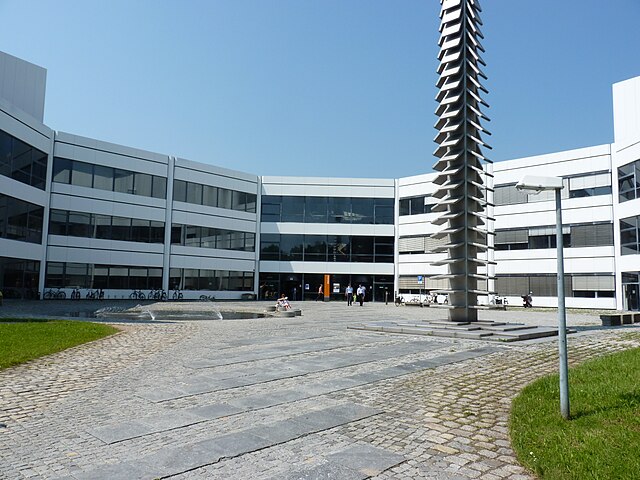Bundeswehr University Munich
University of the Bundeswehr Munich is one of two research universities in Germany at federal level that both were founded in 1973 as part of the German Armed Forces (Bundeswehr). Originally called Hochschule der Bundeswehr München the institution was supposed to offer civilian academic education for military officers. As an uncommon feature amongst German universities University of the Bundeswehr Munich unifies a more theoretical research university division and a more practical-oriented College of Applied Sciences branch. Today, the university has an increasing number of civilian and international students.
The academic year at the university is structured in "trimesters" and not the usual semester, to offer intensive studies with more credit points per year. Very capable students can therefore achieve a bachelor's and a master's degree within less than four years, while this would usually require five years. University of the Bundeswehr Munich has well-established scientific research and forms part of two excellence clusters of the German government's university excellence initiative. The University of the Bundeswehr Munich is one of only very few campus universities in Germany.

Entrance to the university
In 1970 the then minister of defence Helmut Schmidt initiated the reform process which led to the establishment of the two federal universities.
Hirschkäfer, one of the central buildings containing the main library.
Most students live in the student dormitories on campus.
Helmut Heinrich Waldemar Schmidt was a German politician and member of the Social Democratic Party of Germany (SPD), who served as the chancellor of West Germany from 1974 to 1982.
Schmidt in 1977
Schmidt, Erich Honecker, Gerald Ford and Bruno Kreisky in 1975 in Helsinki
U.S. president Jimmy Carter and Schmidt in July 1977
Egyptian President Anwar Sadat and Schmidt in July 1977








